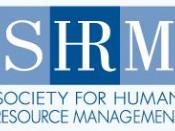Introduction
The role of the HR manager has been through many changes over the years. When I first started out in the nuclear industry 27 years ago, the only time I interfaced with HR was during the hiring process (filling out an employment application or benefits package). Since that time and as my level of responsibility increased the traditional role has transitioned into more in line with the role of an attorney. In fact, it my company, the HR department now consists of many HR personal including 2 attorneys. The driving force behind this transformation is new laws to protect the employees, lawsuits, regulations and the need to protect the company's interest.
Globalization
The globalization of the world economy and the development of e-commerce have made the notion of a 40-hour work week obsolete. As a result, companies need to be staffed 24 hours a day, seven days a week.
Employees in manufacturing environments and service call centers are being asked to work 12-hour days or to work afternoon or midnight shifts. Similarly, professional employees face long hours and work demands that spill over into their personal lives. E-mail, pagers, and cell phones bombard employees with information and work demands. In the car, on vacation, on planes, and even in the bathroom, employees can be interrupted by work demands. More demanding work results in greater employee stress, less satisfied employees, loss of productivity, and higher turnover--all of which are costly for companies (Noe, et al., 2003, p3).
Technology
HR has a smaller pool of talent to choose from as technology increases. For example, few nuclear workers can easily use the PassPort work management software, even though they may possess skill needed to repair plant components. The gap between skills needed and skills available has decreased U.S. companies' ability to compete...


